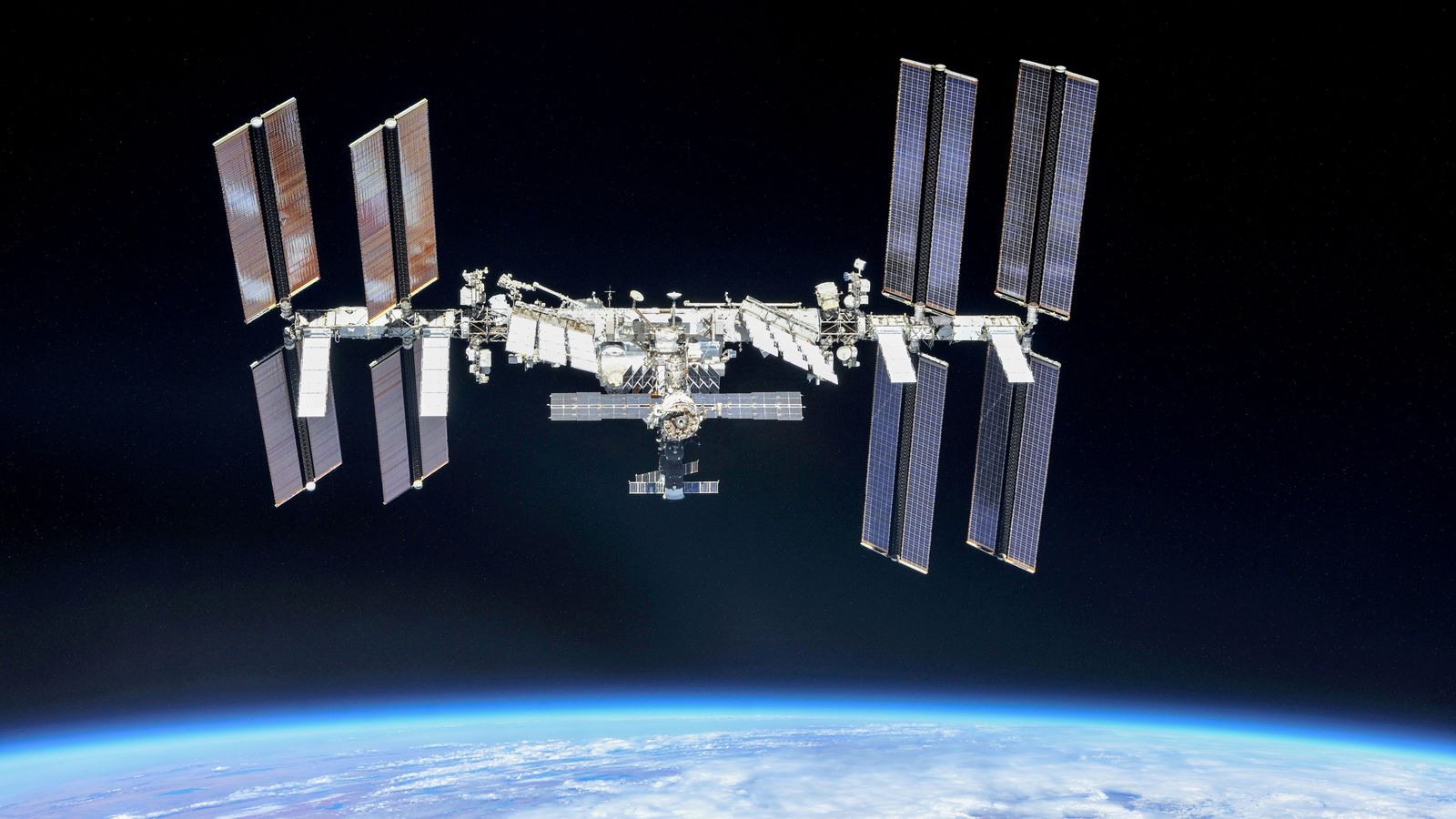Despite heated exchanges and deteriorating relations back on Earth, cooperation between Russia and the US on the International Space Station will continue, according to NASA.
“There really are no tensions in the team,” Joel Montalbano, Programme Manager for the ISS has told Sky News.
The $150bn, 500-tonne space station orbits the Earth every 90 minutes at an altitude of around 200 miles. It currently has a crew of four NASA astronauts, one ESA astronaut and two Russian cosmonauts.
Mr Montalbano confirmed that NASA astronaut Mark Vande Hei would return to Earth as scheduled in a Russian Soyuz spacecraft.
There were doubts that the landing and return to the US of Mr Vande Hei could go ahead under US sanctions on Russia.
He is due to land in Kazakhstan on 30 March along with two Russian cosmonaut colleagues.
Last week a tongue-in-cheek video was posted on social media by Russian government-controlled RIA Novosti, showing the astronaut being left behind on the space station by cosmonauts.
Concerns grew when the video was retweeted by the head of Russian space agency Roscosmos, Dmitry Rogozin.
It was just one of several barbed tweets sent by the Russian space chief aimed at US and European colleagues since sanctions were imposed on Russia.
“I can tell you for sure Mark is coming home on that Soyuz,” Mr Montalbano told a press conference. “There’s been some discussions about that, but I can tell you that all of them are coming.”
NASA’s public position is certainly at odds with its Russian counterpart.
Read more: NASA plans to take International Space Station out of orbit
At the weekend, Mr Rogozin warned that sanctions could impact Russia’s contribution to the ISS.
Russian-built modules are responsible for maintaining the space station’s orbit. Without the Russian boosters it would “fall down onto the land or into the sea”, he wrote.
Asked whether the war of words far below them was affecting morale on the space station, Mr Montalbano responded: “Are they aware of what’s going on on Earth? Absolutely. But they have been trained to do a job and they continue to do that job.”
